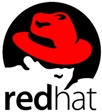Red Hat to acquire Codenvy
 Red Hat, Inc. of Raleigh, NC announced on May 25 that it has signed a definitive agreement to acquire Codenvy, provider of cloud-native development tools that enable developers to more easily create modern container-based and cloud-native applications. By adding Codenvy to its existing portfolio of developer tools and application platforms, including Red Hat JBoss Middleware and Red Hat OpenShift, Red Hat continues its efforts to provide solutions that enable developers to create applications for hybrid cloud environments. Red Hat plans to make Codenvy an integral part of OpenShift.io, Red Hat’s recently announced hosted development environment for building hybrid cloud services on OpenShift.
Red Hat, Inc. of Raleigh, NC announced on May 25 that it has signed a definitive agreement to acquire Codenvy, provider of cloud-native development tools that enable developers to more easily create modern container-based and cloud-native applications. By adding Codenvy to its existing portfolio of developer tools and application platforms, including Red Hat JBoss Middleware and Red Hat OpenShift, Red Hat continues its efforts to provide solutions that enable developers to create applications for hybrid cloud environments. Red Hat plans to make Codenvy an integral part of OpenShift.io, Red Hat’s recently announced hosted development environment for building hybrid cloud services on OpenShift.
“We are thrilled to add Codenvy’s cloud-native development tools and containerized workspaces to Red Hat’s already expansive portfolio of solutions for building modern, cloud-native apps, to help make developers more successful,” said Craig Muzilla, senior vice president for Redhat’s application platforms business.
Historically, software engineers have spent more time each week on administration and other tasks, including environment management, than actual coding. And often, developers can find themselves working on multiple projects concurrently, but in different programming languages. As more IT organizations move to continuous delivery with DevOps and containers to speed the delivery of modern, cloud-native applications, developers have turned to new tools like Codenvy that can enable development teams to build complex applications faster with fewer inconsistencies across environments.
Codenvy, founded in 2013, is the first enterprise offering based on Eclipse Che, the popular open source cloud integrated development environment (IDE) and developer workspace server. Codenvy combines runtimes, projects and an IDE into a cloud-native developer tool that allows multiple developers to collaborate in the same workspace. Codenvy’s portable universal workspaces and cloud IDE address the configuration and sharing challenges created by localhost developer workspaces to allow contributions to a project without having to install software. Codenvy runs in lightweight Linux containers, enabling instant startup and offering elastic scalability for building and running millions of workspaces. Codenvy’s containerized workspaces are easily accessible via a browser without creating, maintaining and managing development environments.
Codenvy and Red Hat have already been working together to help developers accelerate cloud-native application development. Last year, Codenvy, Red Hat and Microsoft announced a collaborative effort to provide a common way to integrate programming languages across code editors and IDEs. The protocol was aimed at extending developer flexibility and productivity by enabling a rich editing experience within a variety of tools for different programming languages. In 2016, Red Hat also joined the Eclipse Che community, adding contributors and committers focused on improvements around workspace runtimes, supporting orchestration and composition formats for workspaces and improving the edit / build / test lifecycle of container images from within the IDE. And, Codenvy is already embedded in Red Hat OpenShift, Red Hat’s award-winning container application platform, to make developing, debugging and deploying apps simple.
Now, with Codenvy as part of its Developer portfolio, Red Hat plans to make Eclipse Che and the Codenvy enhancements central to its tooling strategy and extend and integrate the workspace management technology across tools and platforms. OpenShift.io, which includes Eclipse Che, delivers application development tools and environments needed to help organizations maintain relevancy in a digitally transforming marketplace. OpenShift.io is designed to enable development teams, whether in the same building or across the globe, to more effectively collaborate and create containerized, microservices-based solutions, deployed to hybrid cloud environments.
The transaction is subject to customary closing conditions and is expected to have no material impact to Red Hat’s guidance for its first fiscal quarter ending May 31, 2017, or fiscal year ending Feb. 28, 2018.
Source: Red Hat








